- Table of Contents
- 1. Introduction
- 2. Maryland Motorcycle Insurance
- 3. Maryland Motorcycle Helmet Laws
- 4. Maryland Motorcycle License Laws
- 4.1 Maryland Motorcycle Learner’s Permit
- 4.2 Maryland Motorcycle License
- 4.3 Maryland Motorcycle License Test
- 5. Maryland Motorcycle Passenger Laws
- 6. Maryland Lane Splitting Laws
- 7. Maryland Motorcycle Equipment Requirements
- 8. Sources
1. Introduction
Learning how to operate a motorcycle is arguably more difficult than learning how to drive a car. Because a motorcycle lacks a protective outer shell, requires careful balance, and can reach high speeds faster than other vehicles, it is up to the rider to ensure that trips on this type of vehicle go smoothly. Of course, a rider’s skills are never just given freely; they need to be earned. It requires studying the rules of the road and practicing on your motorcycle depending on the state that you currently reside in.
This blog post will provide an overview of the essential motorcycle laws and a step-by-step explanation of the licensing process in the state of Maryland.
2. Maryland Motorcycle Insurance
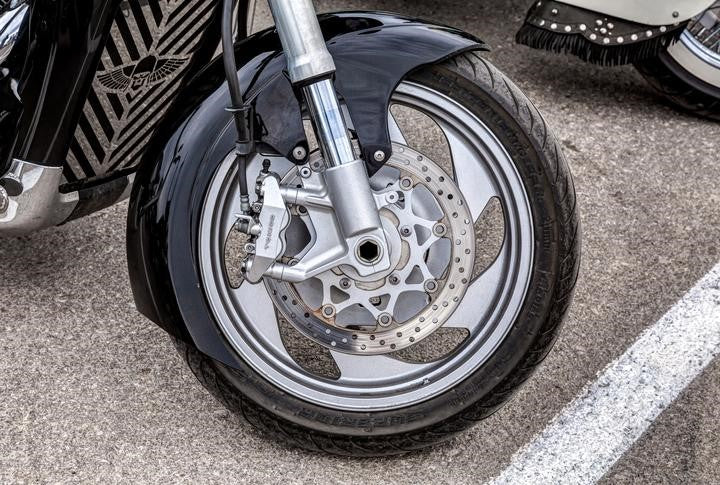
It is mandatory for motorcyclists to have Maryland motorcycle insurance to complete your vehicle registration and in case you are involved in an accident. Due to the hefty fines that can be levied due to property damages and medical expenses, having motorcycle insurance will help pay some of the compensation so you do not have to take too much out of your personal finances. You must carry proof of ownership on your person or secured somewhere on your motorcycle. You must be able to prove you have Maryland motorcycle insurance at traffic stops, accident scenes, and vehicle inspections. Failure to obtain Maryland motorcycle insurance will result in hefty fines, suspension of vehicle registration, and/or your vehicle being impounded.
Your Maryland liability insurance coverage must be able to cover the minimum costs for the following accident-related fees:
- $30,000 for bodily injury to a person per accident
- $60,000 for bodily injuries to multiple people per accident
- $15,000 for property damages sustained per accident
If you wish to protect your health and property, you will need to acquire optional forms of motorcycle insurance coverage. As these are not mandatory, only purchase what you can afford and what will be useful under specific circumstance during an accident:
- Uninsured coverage
- Underinsured coverage
- Collision coverage
- Comprehensive coverage
- Personal injury protection
- Bodily injury coverage
- Medical payment coverage
3. Maryland Motorcycle Helmet Laws
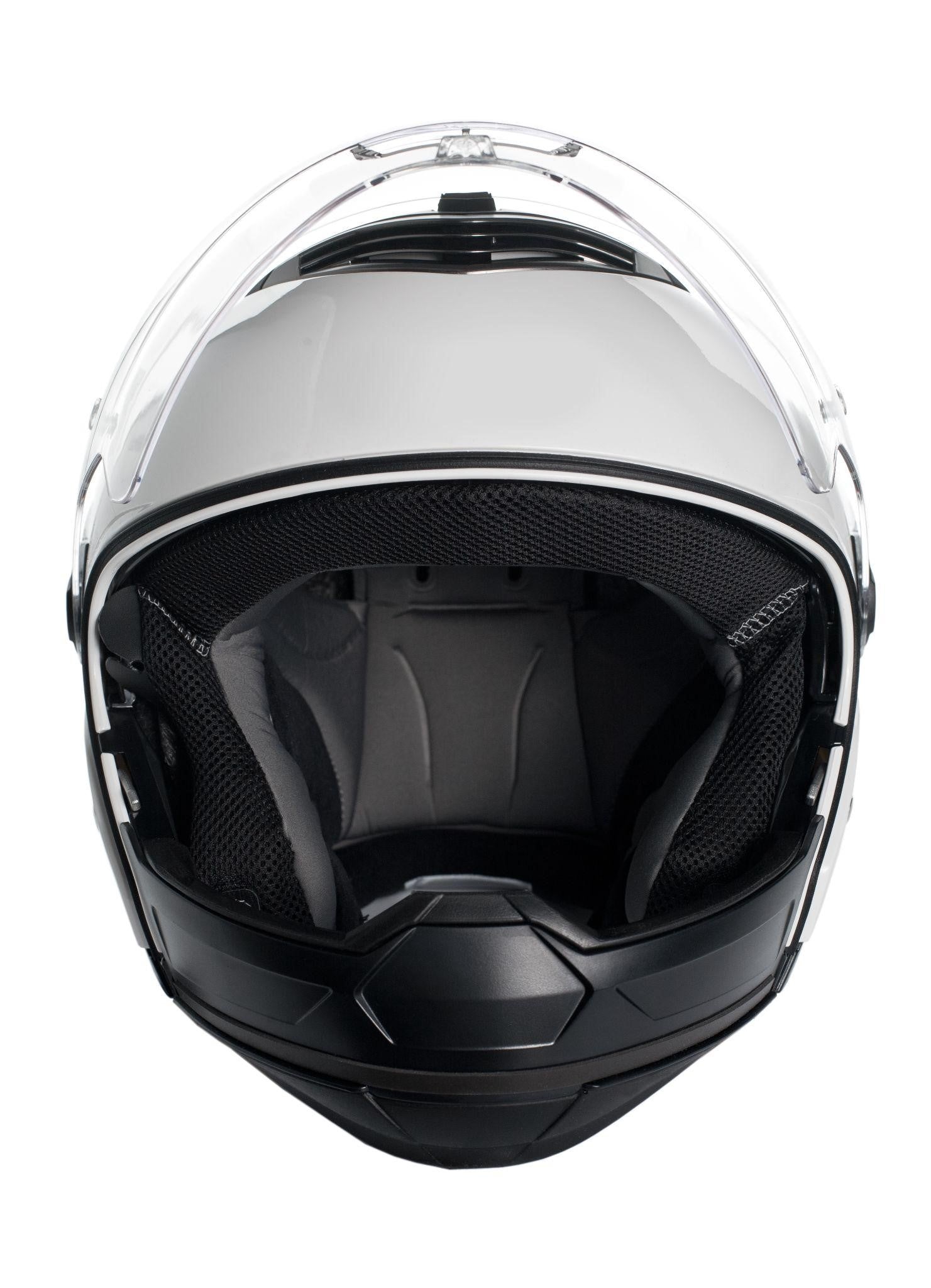
As Maryland has a universal motorcycle helmet policy, all motorcyclists regardless of age are required to wear protective headgear when they are operating their vehicles in this state.
Thanks to the use of motorcycle helmets being enforced in Maryland, the recent statistics have shown how protective headgear has been instrumental in reducing injuries and saving the lives of motorcyclists:
- Between 2012 to 2016, about 34% of motorcycle accidents occurred on state routes
- Between 2021 to 2016, about 28% of motorcycle accidents occurred on country roads
- In 2017, states with mandatory helmet laws like Maryland saw 87% of riders complying with Department of Transportation helmet standards
- In 2017, 39% of fatally injured motorcyclists were not wearing protective headgear
- In 2018, the motorcyclist fatality helmet use rate was 89% for states with mandatory helmet laws like Maryland
- In 2018, 37% of fatally injured motorcyclists were not wearing protective headgear
An approved motorcycle helmet that is recognized in Maryland must meet the safety parameters provided by the U.S. Department of Transportation. It must also have been constructed out of quality materials by the Snell Memorial Foundation. The two models that meet the criteria stated above while providing protection and visibility are three-quarter and full-face helmets.
Listed in this table below are the features that your motorcycle helmet is required to have if you wish to operate a motorcycle in Maryland:
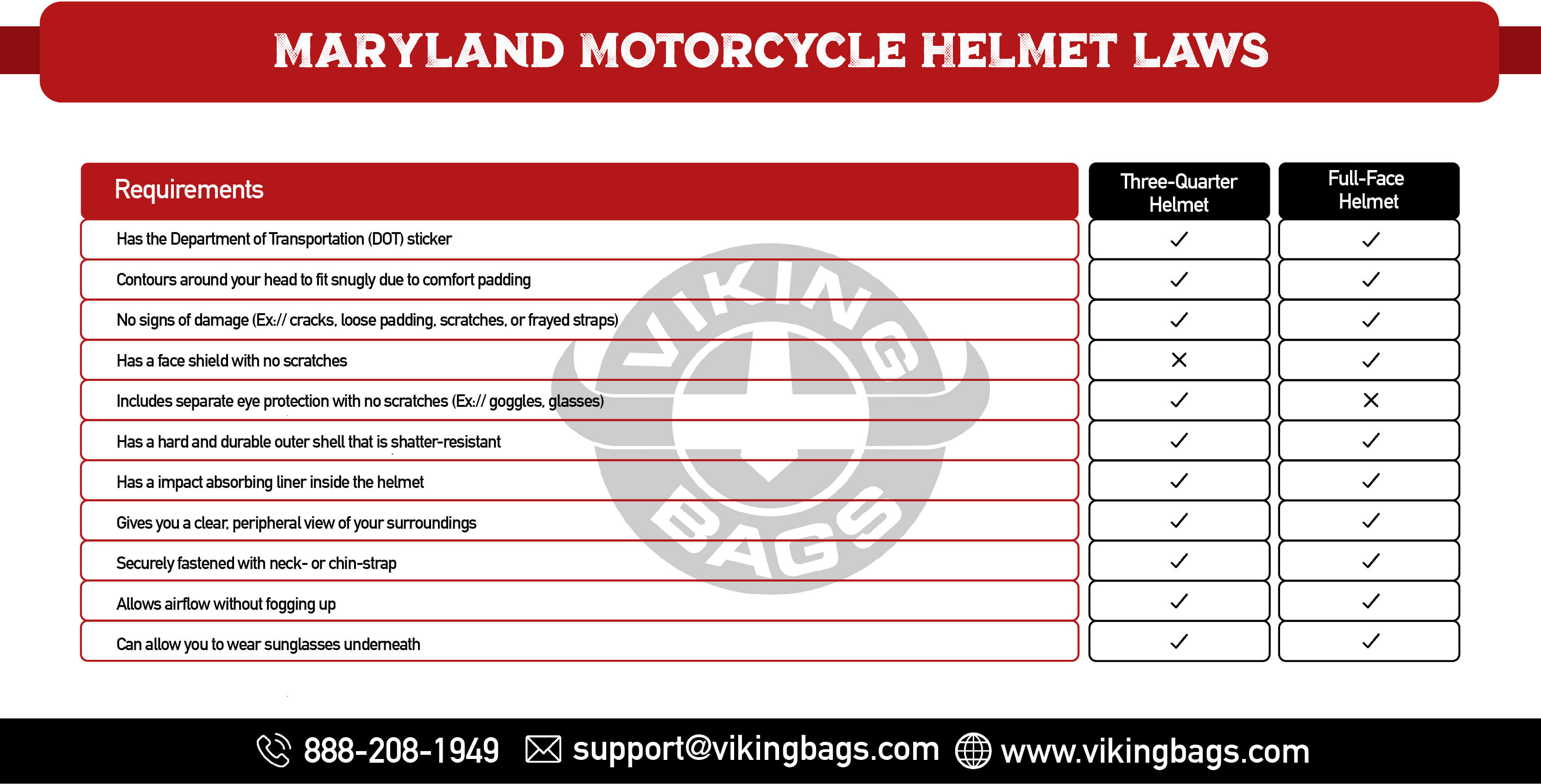
4. Maryland Motorcycle License Laws
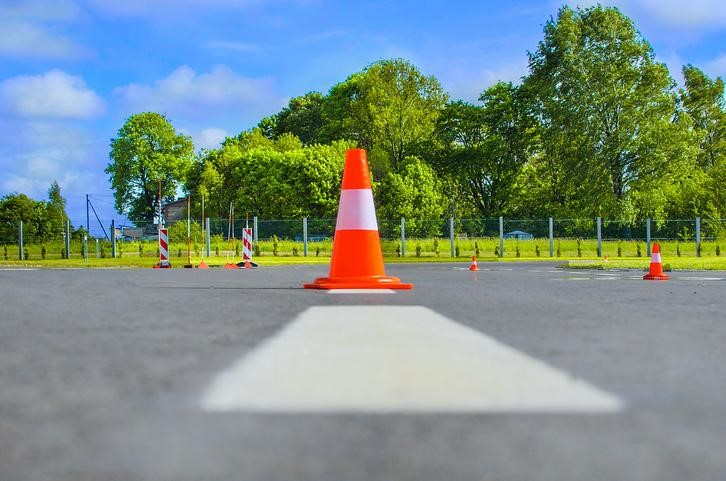
4.1 Maryland Motorcycle Learner’s Permit
You can begin applying for a Maryland motorcycle learner’s permit if you are at least 15 years and nine months old or above.
You will have to pay a fee of $50 to be issued your first Maryland motorcycle learner’s permit. Or you can pay a fee of $30 if you had previously or currently own a Maryland motorcycle learner’s permit.
To be given the permit, you must complete the following tasks and fulfill all of the listed criteria:
-
If you are under 16 years old:
○ Provide school attendance form
○ Have consent and signature from parent or guardian
○ Hold for a minimum of nine months
○ Practice under supervision for 60 daytime hours and 10 nighttime hours -
If you are under 18 years old:
○ Have consent and signature from parent or guardian
○ Hold for a minimum of nine months
○ Practice under supervision for 60 daytime hours and 10 nighttime hours -
If you are 18 to 25
○ Hold for a minimum of three months
○ Practice under supervision for 60 daytime hours and 10 nighttime hours -
If you are under 25 years old:
○ Hold for a minimum of 45 days
○ Practice under supervision for 14 daytime hours and three nighttime hours - Have 30 classroom hours and six hours behind the wheels
- Present identification documents
- Provide proof of Maryland residency
- Provide proof of U.S. citizenship
- Provide your Social Security Number
- Take a photo
- Pass the knowledge exam
- Pass the vision exam
- Pay the required fees
When you are operating with a Maryland motorcycle learner’s permit, you will have to comply with the following restrictions as you practice:
- You must be supervised by a 21-year-old or older who has held a valid motorcycle license for at least three years
- Only passenger you are allowed to carry is your supervisor during practice
4.2 Maryland Motorcycle License
You are eligible to receive a Maryland motorcycle license if you are at least 16 years old or above.
You will have to pay a fee of $9 per valid year if you are under the age of 21 and being issued a Maryland motorcycle license. Or you can pay a fee of $72 plus the $9 per valid year if you are a 21-year-old or above and being issued a Maryland motorcycle license.
Listed below are the requirements you will need to fulfill to obtain a Maryland motorcycle license. Depending on your age when you approach the final step, the list of criteria may differ between motorcyclists:
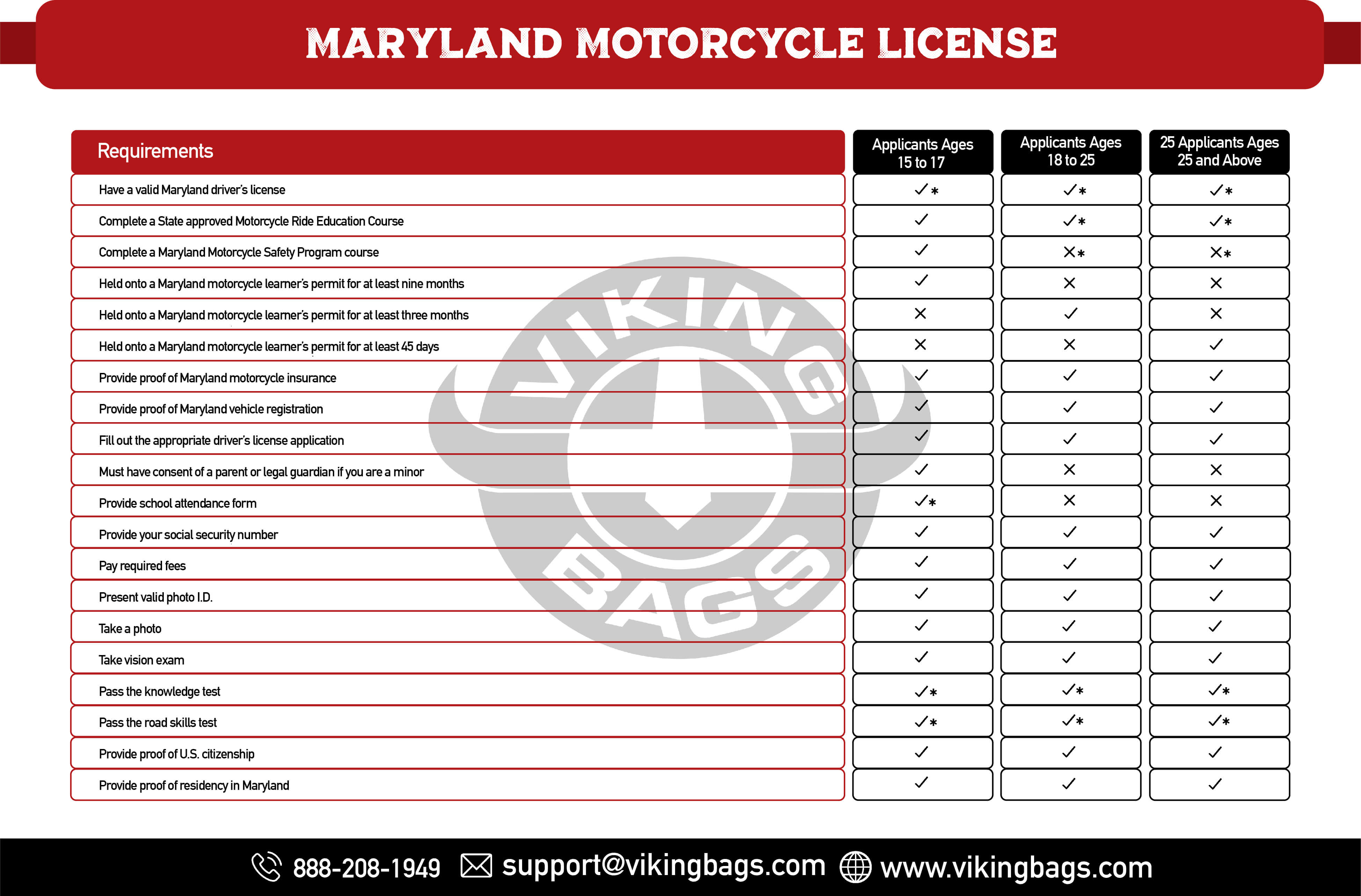
*All applicants under 18 years old and any new riders regardless of age are required to complete an approved motorcycle education course that is recognized in Maryland.
*Any applicants under 16 years old are required to submit a school attendance form if they wish to be issued a Maryland motorcycle learner’s permit.
*All applicants under 18 years old are required to complete a Maryland Motorcycle Safety Program course. Though applicants that are 18 years old or above are not required to complete this course, they can choose to take it if they are interested in waiving the motorcycle learner’s permit, knowledge test, and road skills test.
4.3 Maryland Motorcycle License Test
Written Portion:
- Will be completed on touch-screen computers
- Complete 25 multiple-choice questions
- Questions will be based on content from Maryland Motorcycle Operator Manual
- Will be tested on understanding of road rules and safe riding practices
- Requires a passing grade of 88% or higher
Riding Skills Portion:
- Will be conducted in a controlled, off-street area
- Your motorcycle will be subjected to a pre-ride inspection to ensure it meets safety standards
- Demonstrate basic understanding of motorcycle operation
- You will be tested on your ability to stay within the speed limit, adjusting speed and position, maintaining visibility, operating under stress, accelerating, braking, turning, stopping, and swerving
- The examiner will grade you based on how well you ride at safe speeds, stay within the lanes, and demonstrate riding maneuvers
You will fail the road skills portion of the Maryland motorcycle license test if you exhibit any of the following behavior:
- If you accumulate at least 11 points
- Stall the engine four times
- Drop your motorcycle
- Commit an unsafe action
- Fail to follow the examiner’s instructions
- Violate any traffic law
If you fail any of the sections for the Maryland motorcycle license test the first time, you are allowed to retake it the following day. Following a subsequent failure, you will have to wait at least a week before you are allowed to try again.
5. Maryland Motorcycle Passenger Laws
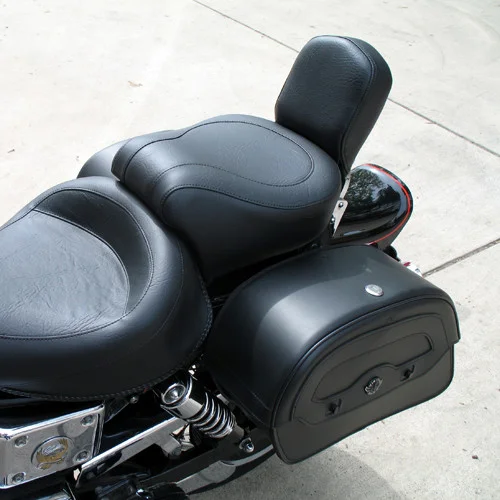
In Maryland, there is no minimum age requirement for motorcycle passengers. All motorcycle passengers regardless of age are required to wear an approved motorcycle helmet. Their motorcycle helmet must meet the criteria listed in the earlier section.
For it to be legal to carry a passenger, your motorcycle must be outfitted with equipment specifically designed to provide secure yet comfortable seating for an additional person. The required equipment will include a designated passenger seat, handholds, and footrests.
The designated passenger seat can only be fixed to the sides or at the rear of your motorcycle. There must be space between the driver and passenger seats to allow the passenger to fully extend his/her legs on both sides. This will also prevent the passenger from interfering with the operator while handling the motorcycle. The designated passenger seat can only be positioned at the following places on your motorcycle:
- The back part of a large driver’s seat
- Towards the rear as a separate saddle
- Fixed to the side as a sidecar
Because there is no age restriction, you will have to consider other criteria when deciding who can safely ride with you. A popular rule of thumb is that a passenger must be able to reach and plant their feet against the footrests. Therefore, it is best to avoid transporting young children or elderly individuals. Other characteristics to look for in a motorcycle passenger include the following:
- Your passenger must be able to reach the footrests
- Your passenger must wear an approved motorcycle helmet
- Your passenger cannot be carrying any packages
- Your passenger must be able to understand and follow your directions
6. Maryland Lane Splitting Laws

Motorcyclists are forbidden from attempting any form of lane splitting while operating a museum in Maryland. Because lane splitting involves getting precariously close to larger vehicles and maneuvering in their blind spots, the chances of getting into a fatal accident become higher. To avoid collisions and trouble with local law enforcement, motorcyclists should avoid engaging in the following behavior:
- Riding on top of the dividing lines between lanes
- Riding in between adjacent rows of stopped vehicles
- Overtaking a larger vehicle ahead in the same lane
Thanks to the high maneuverability and compact design of motorcycles, riders are entitled to certain rights regarding how they can act when on the road. Motorcyclists are allowed to attempt the following behavior in Maryland:
- You are allowed to make full use of the space within your current lane
-
You can only share a lane with another motorcycle if:
○ Both parties stay apart at least two abreast
○ Both parties consent beforehand
7. Maryland Motorcycle Equipment Requirements
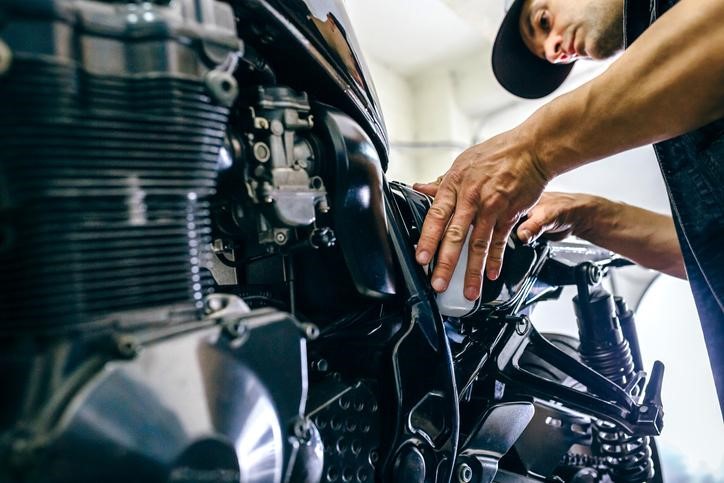
To promote better safety for yourself and the other drivers sharing the road, you should make sure to bring your motorcycle in for vehicle and safety inspections whenever possible. Examining the primary components and testing their functions will help make it easier to determine if there are problems that need to be identified. If you take good care of your motorcycle’s condition, there may not be any outstanding issues to worry about. But if there are any signs of damage, you will either need to apply repairs yourself, at an inspection station, or at a repair shop.
Listed below are the equipment your motorcycle must be fitted with to be considered street legal in Maryland. These components are essential to your motorcycle’s maneuverability, visibility, and overall functionality:
- Horn
- Wheels
- Tires
- Handlebars
- Front & Rear Brake
- Controls
- Headlight
- Taillight
- Brake Light
- Turn Signals
- Exhaust system
- Muffler
- Rearview mirrors
- Fenders
- Footrests
8. Source
 www.vikingbags.com
www.vikingbags.com
888-208-1949
391 Thor Pl,
Brea, CA 92821
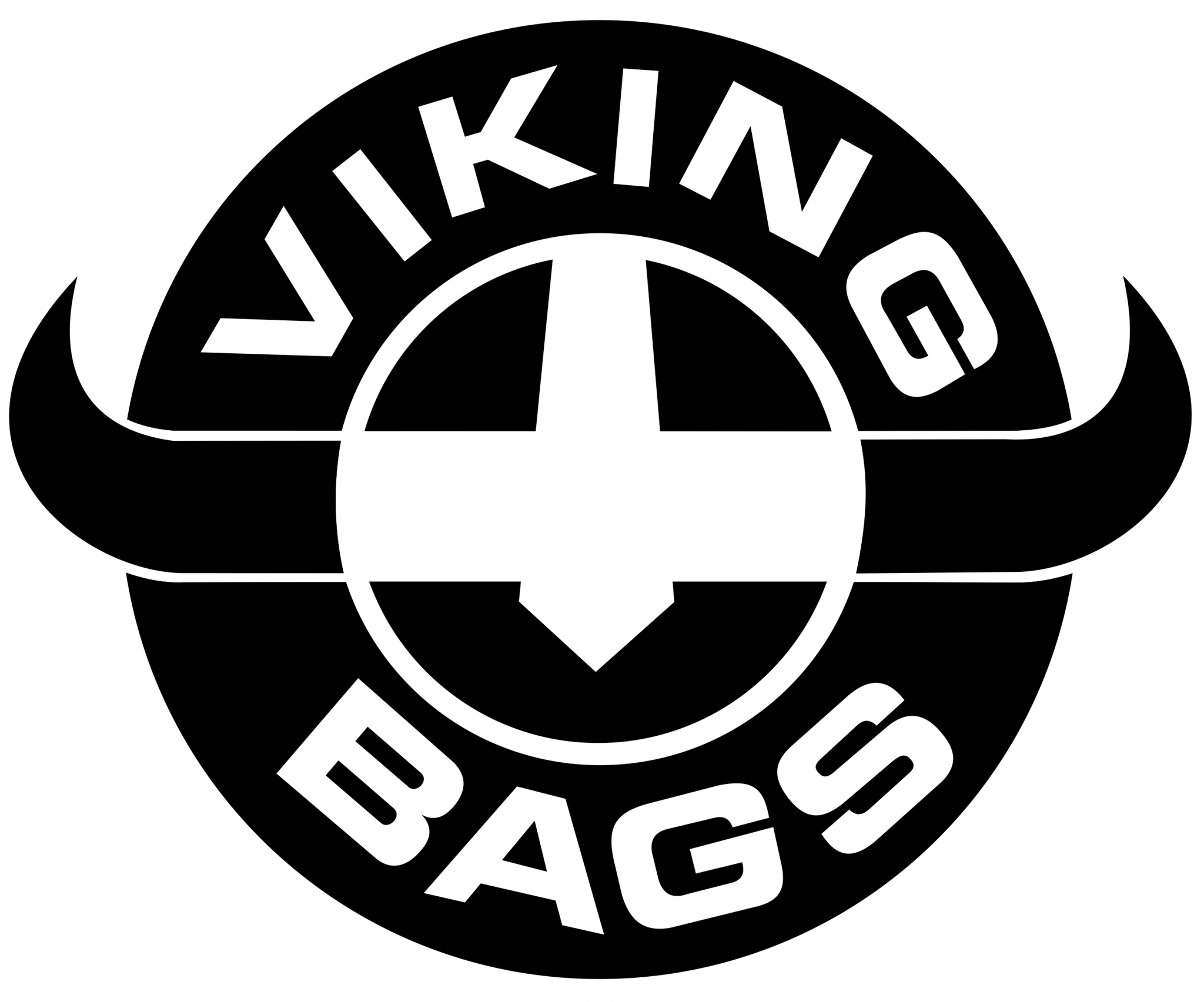















Leave a comment
All comments are moderated before being published.
This site is protected by reCAPTCHA and the Google Privacy Policy and Terms of Service apply.